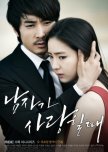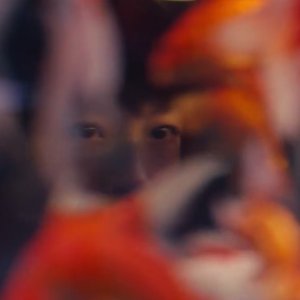
Esta resenha pode conter spoilers
Writing, It Turns Out, Is Not That Simple
The Autumn Ballad wishes to be a classic tale of family intricacies, power and corruption, mystery and love, but hitting all separate points does not a good story make. An extremely promising first part somehow ends as a series of happenstances so random and unbelievable that it feels parodic.I want to focus here on 3 aspects of Qiu Yan's character: her relationships with her sister, her mother, and with Liang Yi.
Her relationship with Liang Yi remains the best of all 3, but not for the reasons it should. The pacing of meeting each other, disliking each other, relying on each other, and all the way to being in love / realizing the other is in love, is impeccable at first and very correct later on. The chemistry is here, the tempers, body languages, conflicts and devotions, are lovely. Things such as asking her to come with him, never acting dominantly, never trying to make her stay, are what i was looking forward to, and i was satisfied. It fits with the view we originally have of them both: Qiu Yan as a headstrong girl always hiding under a layer of defiance, Liang Yi as a usually cold man who cares very little for affection and who recovers his tenderness and mischievous side.
Qiu Yan's relationship with her mother was hinted from the beginning to be a big part of her emotional burdens and the source of her resentment. It follows through as such, the (lack of) development is logical and the last scene they share is wonderful because Qiu Yan refuses to simply forgive and forget. But this conflict brimming with story potential is simply left to stew in a corner, nearly-untouched, but for the 3 or 4 scenes it is given, which makes me wonder—was its climax good on purpose, or just because the writers didn't pay enough attention to it to mess it up?
But by far the most disappointing part of this drama is Qiu Yan and Qiu Min's relationship. Once again beautifully introduced as a delicate dynamic: Qiu Yan convinced that Qiu Min hates her, angry and worried at once to see her act so meekly; Qiu Min envious of her older sister who seems so capable and smart, who captured her mother's love, but who also exists as a protective shadow that she doesn't want to live.
They have so many of those delicate and beautiful scenes. Qiu Min asking Qiu Yan to hug her, and Qiu Yan holding back because she wants Qiu Min to learn to be on her own, is only the most memorable one. And I was so hopeful about how they would develop that I kept up hope even after the base cliché of sexual assault as a lesson to the maudlin and selfish girl; even with her "turning dark", I was hopeful; because I knew that it could be so good, if only all of this was focused on the sisters' relationship. As you probably guessed, it didn't happen. Qiu Min becomes a cheap rival love interest antagonist whose entire character is dedicated to making the viewer feel satisfied when her petty attempts fail. Even the excellent parting line, "I was so jealous of you, I forgot that I used to like you," can't simply fix this disaster.
I will spare you all from just how ridiculous the actual plot becomes, because I could write a whole review on how absurd the last episode was. In the end, what to take out of The Autumn Ballad? It's not the sort of drama you can watch "just for the romance"; the romance is good only because you go through the plot alongside it, and as the plot becomes offensively bad, the romance alone can't satisfy a viewer. At least not this viewer. The show is a mess, and in my opinion, the mess is due in part to its length. The plot, once rearranged, could've been beautifully wrapped up in 25 episodes. Alas, quality is never the only goal in a drama production.
Wanting to fill the afforded space is not that simple—especially not when you aim for this setting and deal with delicate characters. Good writing also means knowing how to prune the branches of a story.
Esta resenha foi útil para você?

Esta resenha pode conter spoilers
An Ode To Domestic Violence
Reading the comments on this drama is such an infuriating experience because of the hate that the FL gets or how people fixate on her cheating as if the ML isn't viciously abusive to her the whole time... it's bad enough that the story ends with her staying with her abuser, I didn't think I would have to see so many hurtful opinions on top of it.The ML uses emotional manipulation on her, relies on the fact that she owes him money, screams at her, throws things around to scare her, sabotages her chances at independence, takes advantage of her being injured to keep her with him, grabs her violently, goes through her phone, follows her, assaults her... He tries to apologize after bouts of aggression by offering money and extravagant affection... this is literally textbook domestic violence. Not to mention him threatening her sexually when she was a kid, after assaulting her father in front of her.
Seeing people zeroing on her cheating or even calling her selfish is heartbreaking and just tells me no one really understands domestic violence even when explicitly depicted in fiction... Besides the anger at a terrible ending what I felt the most was hurt and sad that she wants to be with the one she likes—the SML—and is stopped in her tracks every time. I was actually enjoying the show bc I thought it was a realistic depiction of domestic violence and what victims go through to escape it, how long and gruelling the process is physically and mentally... but the last episodes were terrible and ended up with this absurd forgiveness of the narrative towards the ML, with no criticism behind it as to why victims so often remain with their abusers. It's just presented as a happy forgiving ending, and the SML suddenly giving up on his love for the FL for no palpable reason.
I didn't find the FL annoying at all. She was poised while struggling with this man twice her age who keeps her trapped financially and physically/emotionally. It truly breaks my heart to see the takes some people have in the comments. I can only encourage people to read up on domestic violence and understand the forms it takes.
All in all, this is a very bad show, but not for the reasons you might expect. Tons of dramas depict abusive/toxic behaviors as cute or romantic, but this one is different, because the way that the script is written and acted is meant to show that this is wrong, that this is domestic violence. At least at first. The deviation from this and toward "we were both wrong, let's start over" (and meant to be seen as a happy ending, not as yet another technique of DV) in the last few eps is what is terrible about it.
Take that as you will... but as someone very well-read on domestic violence and with first hand experience of it, I think if you saw the FL as selfish or nothing more than a cheater, you need to think some more.
Esta resenha foi útil para você?

Esta resenha pode conter spoilers
Wordlessness Is Not Silence
A show-stopping movie I have kept in the closet for later perusal for a long time now. We rarely see such profound acting anymore in popular cinema, and I am grateful for this website especially for the movies it recommends me and which I would never get to know about or to see in theaters in my country.I don't know where to start praising: the cast, the music, the filming, the deceptive play of plain colors, the themes of abandonment. The fact that rather than having the two lead characters have open conversations, the dialogue is spoken over them, instead of by them, by other characters. It doesn't matter if these characters are the nice cop or the mean one, the bullies or the acquaintances, family itself. Decisions are taken over their lives in discussions they will not join, and their true feelings and wishes remain wordless—but not silent.
Facial expressions, isolated words, the ways of physical contact: those are the dialogue that the main characters engage in. And nothing is as breath-taking about it than the entirely silent exchange they have through the glass window, looking at each other with the other's reflection superposed to their face, the slightly off-tempo of the smiles and tears and begging they give.
The flash-forward at the start which becomes the time-skip of the ending is all the more poetic. This was, used to be, is, their playground: their relationship has not vanished despite the years of separation, and the revolute time can always be brought back. And here comes the play of colors: the little girl's yellow clothes and Chen Nian's yellow prison uniform, and how Chen Nian takes the shackles of those clothes off the girl as she walks her home...
In fact I would say this story is not so much preventive toward school bullying as it is a tender testimony of loneliness, although its public interest did cause significant changes in order to help victims. It is abandonment by family, friends—Chen Nian refusing to answer the dead girl's plea at the beginning,—the school system, the justice system. But it is also about bringing the lonely together and how lifestyle does not indicate the humanity in one's heart.
Dialogue crushes and avoids the scarcely-speaking main characters, but they are certainly not silent.
Esta resenha foi útil para você?








